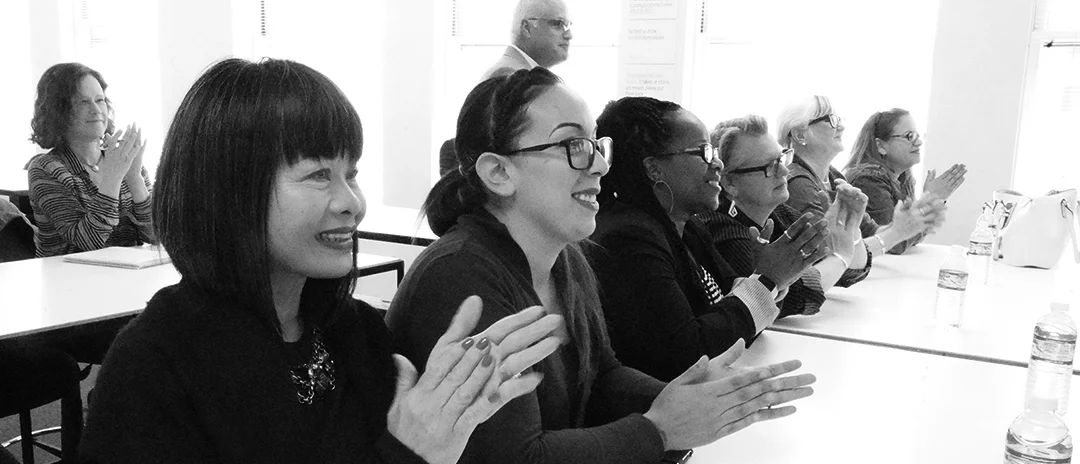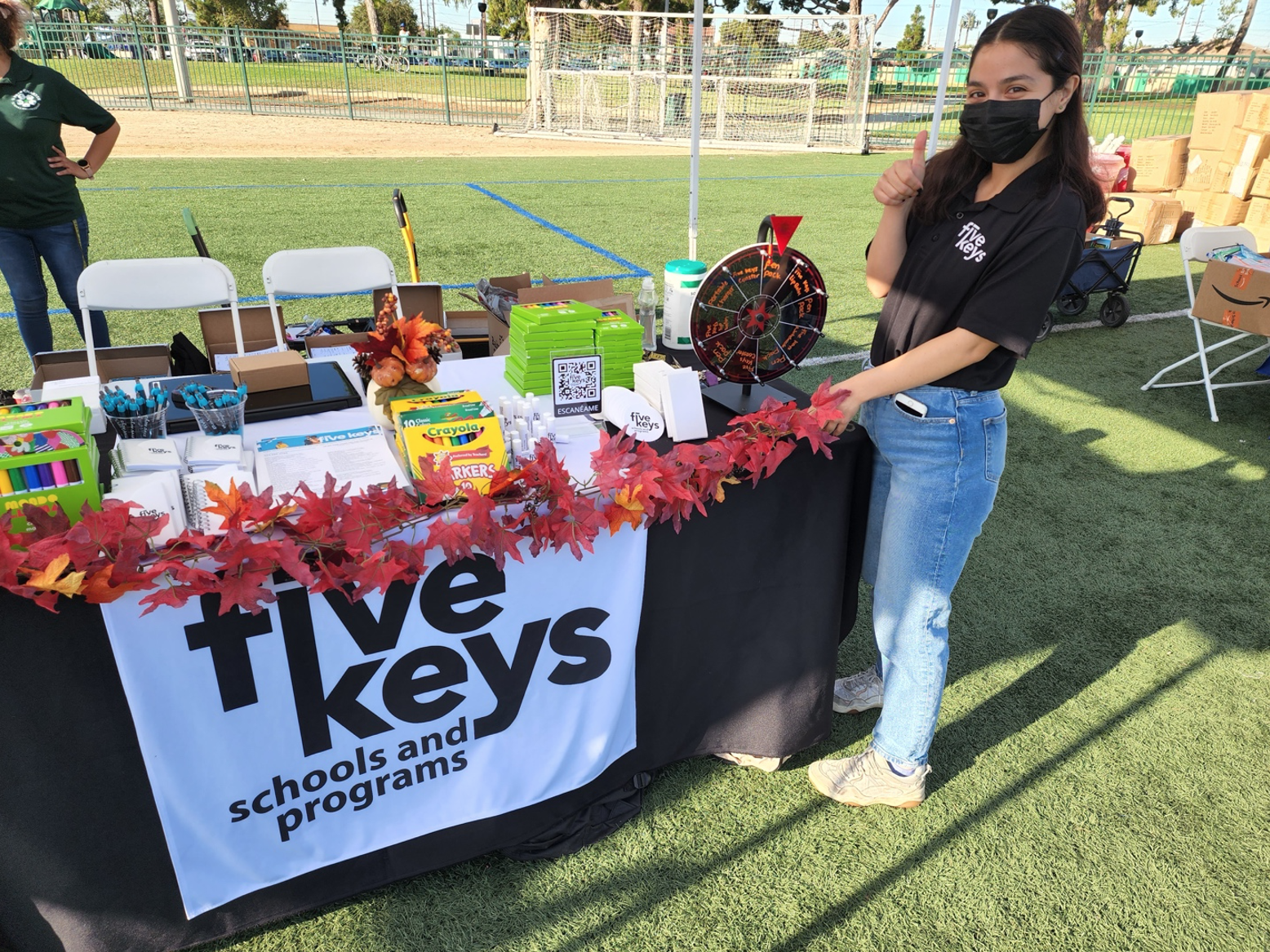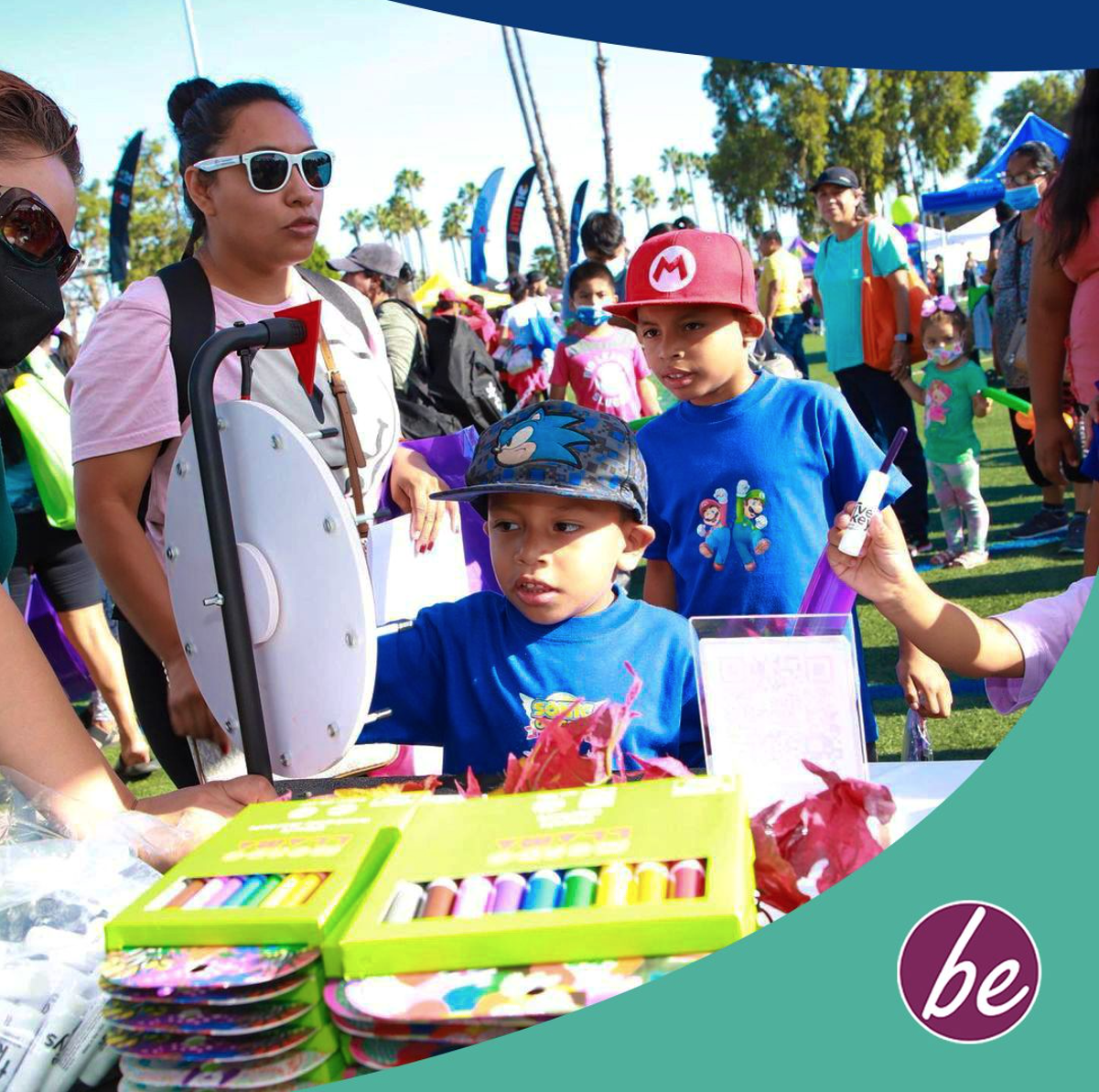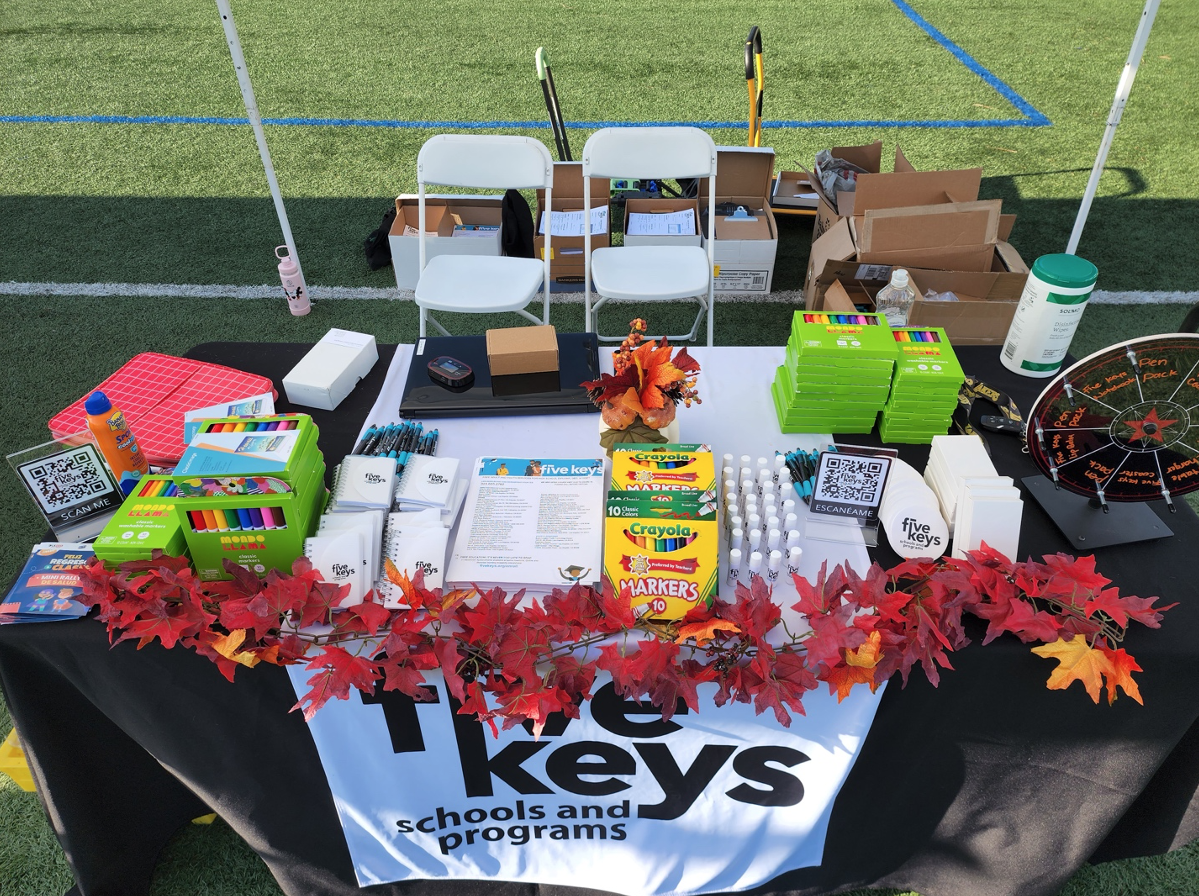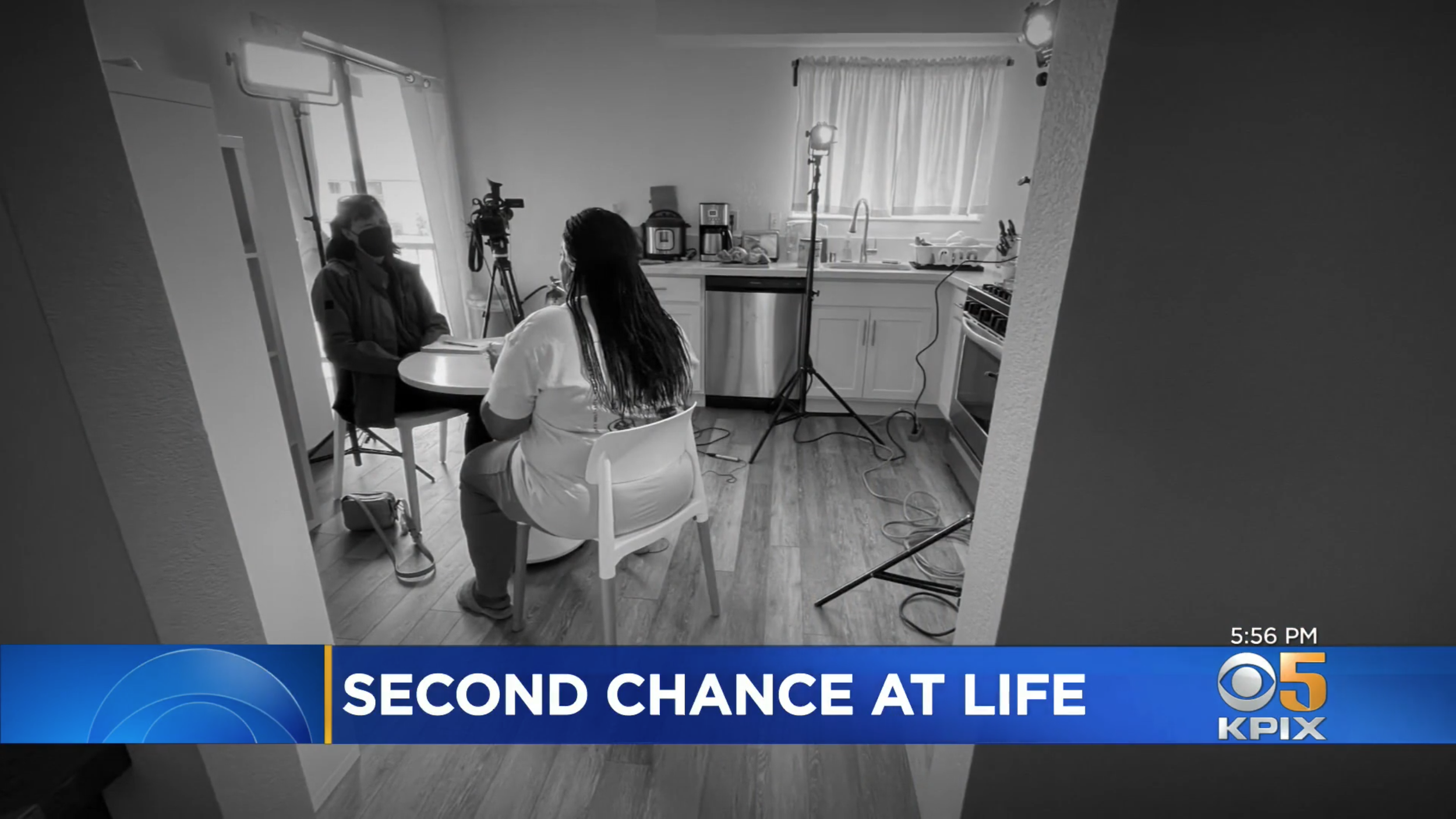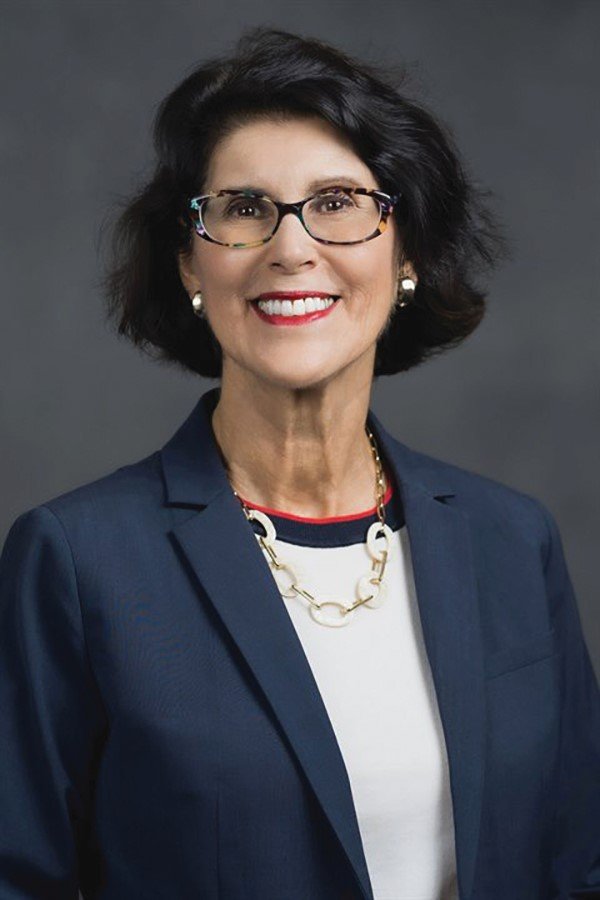Dignity Village Groundbreaking Ceremony
Maurice Ramirez, Alamedapost.com
Posted Nov 7, 2022, at 7:50 am PT
On October 25, 2022, the City of Alameda held a ceremony to celebrate breaking ground for construction of Dignity Village on Fifth Street. City Council authorized the project in a 4-1 vote on April 5, with Councilmember Trish Herrera Spencer voting against. The City of Alameda is sponsoring the project. $2,555,844 in operational funding and $9,225,536 for the development of the project is coming from the State of California (State) through the Housing and Community Development Department (HCD), and another $2,654,622 in capitalized operational reserves sourced from the Alameda County Housing and Community Development Department. The City is also contributing $10,855,995 towards the development and operations of this project.
Dignity Village will be administered by two organizations. DignityMoves, is serving as the project development manager. Five Keys Schools and Programs will serve as the onsite social service provider and property manager. The complex consists of a two-story shelter, a three-story shelter, an administration building, a community building, community gardens, a pet area, and 27 parking spaces. When it is completed, the center will house up to 61 individuals and couples in 47 units. Dignity Village will serve the homeless, chronically homeless, and homeless youth.
Construction Of Dignity Village To Kick-Off In Alameda
Dignity Village, an Interim Supportive Housing project in Alameda, will serve the homeless, chronically homeless, and homeless youth.
Kim Harris, Patch Staff, Patch.com
Posted Mon, Oct 24, 2022 at 2:38 pm PT|
ALAMEDA, CA — Construction on Dignity Village, a two story, 47 room Interim Supportive Housing project located at 2350 Fifth Street, will begin Tuesday, Oct. 25 at 10 a.m. with a kick-off celebration, the city of Alameda announced in a news release.
When completed, Dignity Village will serve the homeless, chronically homeless and homeless youth, the city said.
Pictured (left to right): Assemblymember Mia Bonta, Mayor Marilyn Ezzy Ashcroft, Senator Nancy Skinner, City Staffmember Lisa Maxwell, Elizabeth Funk, CEO DignityMoves, and Steve Good, CEO Five Keys
Each of Dignity Village's 168 square foot rooms will include a private bathroom. The project also boasts community programming spaces, including a dining space, community garden and courtyard, as well as meeting rooms, private offices for support services staff, and storage, the city said.
Speakers at the kick-off celebration include Alameda Mayor Marilyn Ezzy Ashcraft, Alameda Community Development Director Lisa Maxwell, Assemblymember Mia Bonta, Senator Nancy Skinner, Elizabeth Funk of DignityMoves and Steve Good, President and CEO of Five Keys Schools and Programs.
According to the news release, Dignity Village has received $2,555,844 in operational funding and $9,225,536 for the development of the project from the State of California through the Housing and Community Development Department, and $2,654,622 in capitalized operational reserves from Alameda County Housing and Community Development Department with the support of Alameda County Supervisor Dave Brown. The city of Alameda is also contributing $10,855,995 towards the development and operations of the project.
Pardon Us: Meet the Women Behind Home Free Here, they open up about life after prison
On Never Losing Hope
Meet Nilda Sarayda Palacios, 39
Today: Health worker, the San Francisco Department of Public Health
Life behind bars: Nilda was 17 when she was convicted and sentenced. For 17 years, Nilda served time behind bars, ending up in prison and sentenced to 27-years-to-life for killing a man who was abusing her physically and very cruelly and emotionally during the time she was homeless. She wasn’t allowed to bring into court evidence of abuse.
Beginning again: Nilda was released in 2017 from the California Institution for Women in Chino, CA. Her sentence was reduced to involuntary manslaughter, and she was given credit for time served. For 16 years prior to that, she spent 16 years in Central California’s Women’s Facility in Chowchilla, the largest women’s prison in the state.
First thing she did when she was released: “I went to the beach and wrote ‘freedom’ in the sand.”
In a name: Nilda’s name comes from the Greek word that stands for “Warrior
Woman.” It’s a name her Guatemalan mother picked for her after a niece who died early, and her mother says, is meant to conjure up the image of a woman always having to face challenges all on her own. As she grew older, Nilda changed her name for a while to “Emily,” her brother’s middle name. In prison she had to abandon both names and was referred to as an identification number.
Moving on: Life after being behind bars: “I do self-nurturing and self-care by focusing my energy and time on things that are interesting to me. I’m also mindful of my five year parole plan and not allowing myself to be deterred from completing the plan objectives.”
Mantra and mission: “Do not lose hope, engage in persistent prayer, and rely on your unwavering faith. My overall message is to be kind to others as you may never know when you’re entertaining angels, remain consistent in reaching for your dreams and don’t give up no matter how difficult things may seem.”
How she’s redefining herself: “I’m reconnecting with the community, working
on being more spiritually grounded and more open to learning things I didn’t know about myself.
Favorite book: The Notebook, by Nicholas Sparks an intensely romantic book—a novel about the everlasting power of “true love.”
Her Good News: In the five years Nilda has been working tirelessly to have her dream come true — to own her own home. She set a goal and worked every day toward it. In August, she purchased a three-bed, three-bath home in Pittsburgh, CA, where she lives with her new partner, and dog, Milo. Over the Labor Day weekend, she hosted a weekend-long celebration inviting her whole family over.
Five Keys staff donate backpacks, school supplies to LA-area students
Five Keys Celebrates “Happy Back to School!” for Students in Huntington Park, CA
Five Keys staff gathered more than 3,000 backpacks and school supplies for students of all ages heading back to school in Huntington Park, CA, a mostly Hispanic, working-class community in the inner Southeastern Los Angeles area.
On August 13, members of Five Keys’ ELO and Student Services teams joined the “Happy Back to School” event, which drew more than 5,000 people, and sponsored by Be Social Productions, according to Carol Guillen, Learning Recovery Manager.
“Our goal was to engage with the community and give back,” says Guillen. “One of the Five Keys stands for ‘Community’ and this event gave us the opportunity to immerse with one of the communities we service. We were able to give back to school age students and share the great services Five Keys provides with those interested in enrolling.”
The event, held at Salt Lake Park in Huntington Park included surprise guest, J.R. Villanueva, from the Disney Channel series Ultra Violet & Black Scorpion and included free backpacks, school supplies, COVID-19 vaccines, health screenings, free kids’ haircuts, arts and crafts, raffles and much more.
A shoutout goes to Baby2Baby, a nonprofit which provides diapers, formula and the basic needs for children living in poverty, and Big Sunday, an LA-area organization which organizes more than 2,000 ways for volunteers to help the community each year.
Big Sunday donated 175 pre-filled back packs and Baby2Baby donated over 6,000 writing utensils (pens/pencils/markers/color pencils) along with some binders. Five Keys provided "swag" items such as pencil pouches, hand sanitizers, portable chargers, lip balms, coasters, notebooks, and pens with the Five Keys logo. The Five Keys booth drew much attention to Five Keys’ ESL classes, adds Guillen.
Five Keys staff who helped organize the event included: Carol Guillen, Andrea Casillas, Learning Recovery Paraprofessional, Claudia Tinajero, Administrative Assistant, Karla Muñoz, Administrative Assistant, Dorothy Velasco, Assistant Director of Operations and Vanessa Martinez, Regional Administrative Manager.
Planting Seeds for Success: Five Keys Community Farming Initiative Gets Green Thumbs Up with $300,000 USDA Urban Agriculture Innovation Grant
SAN FRANCISCO, CA, August 16, 2022 – Five Keys Schools & Programs’ Ecological Agriculture Training/NORCO (EAT!) program received a $300,000 innovation grant from The U.S. Department of Agriculture (USDA) to fund its innovative urban agriculture program in Southern California.
“This grant will help local farmers through our EAT program create new, more affordable, and better local market options and help our urban community produce fresh and healthy food locally and reduce food waste,” said Steve Good, President & CEO Five Keys. “Supporting agriculture in our urban communities helps grow our economy and provides food to people, while creating a new generation of farmers.”
Through its Urban Agriculture and Innovative Practices (UAIP) Grant program and cooperative services agreements, the USDA is investing $43.1 million in urban agriculture programs across the country to help deliver key USDA programs to urban producers. These actions support USDA’s efforts to strengthen the food supply chain and transform the food system to be fairer, more competitive, and more resilient.
Five Key’s EAT Center is a community-based program, partnered with the city of Norco, CA that is part of a growing trend of community farms that are cropping up across the country. EAT stands for Ecological Agriculture Training. Its mission is three-fold: to build community, empower small businesses and strengthen the City of Norco and Riverside County’s rural economy. One of the goals is creating a new generation of farmers while reducing food insecurity and inspiring hands-on farming among community members in Norco, and inspiring other towns to do the same.
Five Keys farming programs originally were founded to serve in-custody (county jail) populations, through its correctional education programs. When the funding ended for these programs, Five Keys pivoted to community-based farming and found a willing partner in the City of Norco.
“We’re building a community that aims to educate, inspire, advocate, and create change,” says Chris Faucher, Assistant Director of Career Technical Education. Patrick Mitchell, EAT! Program Instructor and Mentor, added: “Food is the great connector. It is something that is embraced by the community and gives people a chance to support each other and be involved in a life-giving project together.”
During the first few months of the pandemic, the Five Keys EAT! Center pivoted to create social distancing safety protocols and launched the Small Farm Apprenticeship Program to train new farmers in regenerative and sustainable practices. In 2021 Five Keys and the EAT! Center launched the Norco Rural Farmers and Artisans Market. This weekly event is designed to support local farmers and small businesses. It features more than 20 arts and craft vendors, eight farms, three community organizations and seven cottage food businesses. Recently the EAT! Cultural Center launched the Family Agriculture Revival Movement. The FARM! Program is designed to engage farm families in the culture and community of farming. The program offers seminars and workshops that are open to everyone from the community. Many of our workshops will focus on topics ranging from canning, financial literacy, entrepreneurship, branding and more. Seasonal events and celebrations also are planned to support the local small farm effort.
Long-term plans for EAT! include community education programs and special events. In the short term, Five Keys is building the Ecological Agriculture Training Farm on land bordering the Cultural Center in Norco, CA. The training farm will provide hands on experience in various small scale, intensive agricultural practices. This USDA funding will support all of these programs, though it only covers approximately half the total required budget.
About Five Keys Schools & Programs
Five Keys was founded in 2003 by the San Francisco Sheriff’s Department as the first accredited charter high school in the nation to provide diploma programs for adults in county jails. Today Five Keys is a social justice non-profit agency that has expanded its schools into 9 counties, in 24 jail locations and over 80 community learning centers. In addition to schools, Five Keys operates multiple homeless shelters, permanent supportive housing programs, transitional employment programs, reentry programs and housing for women suffering from immense injustice. Five Keys is a second chance employer. Our goal is to restore communities through education and other programs that respond to the students’ and community needs — which in turn creates safer communities. Visit: www.fivekeys.org.
About the Urban Agriculture and Innovation Production (UAIP) Grant. The UAIP competitive grants initiate or expand efforts of farmers, gardeners, citizens, government officials, schools, and other stakeholders in urban areas and suburbs. Projects may target areas of food access; education; business and start-up costs for new farmers; and development of policies related to zoning and other needs of urban production. To learn more visit: usda.gov.
Treasure Island housing gives domestic abuse survivors second chance
BY SHARON CHIN
UPDATED ON: AUGUST 11, 2022 / 6:00 PM / CBS SAN FRANCISCO
TREASURE ISLAND - Domestic violence survivors are unlocking hope in their new homes, in what's believed to be a first-of-its-kind housing program in California.
Cooking in her own kitchen was a taste of freedom Belinda Anderson had not known for more than half her life.
"I'm starting my life at the age most people retire," she said.
Anderson was once a dental assistant, living with her boyfriend and their daughter.
She recalled, "The hitting started, the beating started, then the cheating came."
She says back then, people didn't consider the behavior domestic violence as we do today.
"I felt like such a failure. I couldn't tell [people] what I was going through, because they would've been like, 'Girl, shake it off!'" Anderson said.
So she looked for coping mechanisms.
"I grasped at anything. I grasped at other people's lifestyles. I grasped at using drugs, and then that became my life," she said.
And one day, the San Francisco native killed a cab driver during a robbery. She spent the last 31 years in state prison in Chowchilla.
Abuse survivors like Anderson have served decades-long prison terms; some for killing their violent partners. But legislative reforms in the last decade have allowed women to challenge their convictions by showing they were abuse victims.
Anderson was released in March. Governor Jerry Brown commuted her life sentence.
"It was like a dream," she said, to hear of her release.
Anderson is one of up to a dozen formerly incarcerated women who live in furnished 2-bedroom apartments on Treasure Island rent-free.
The Five Keys Home Free Project started the innovative transitional housing program two years ago, to help abuse survivors unlock a second chance at life.
"When I walked through that door, I was like - I got an apartment. You know, I held the keys, I rattled the keys. I just kept jiggling the keys in my hand," Anderson smiled.
She is getting the wide-ranging support she needs to re-enter society: a second family at five keys, a job, technology and financial literacy classes, and help enrolling in college this fall.
"I wake up with a smile on my face every morning because it's like, 'God, thank you, I made it,"" Anderson declared.
Every day is new experience. From the high cost of eating out, to sleeping in a room alone.
"At first it was kind of spooky to me, because you could hear every little sound," she said.
Simple pleasures bring her joy: her comfortable bed, bubble baths as long as or as many times as she wants, and breathtaking views of the bay bridge from her back window.
"It';; be all lit up at night. Sometimes I just stand here and it'd be like, 'I'm really home, there it is !'" she reflected.
Thanks to Five Keys, Anderson is hope-filled, and home free.
The nonprofit's second annual fundraiser, Home for Dinner, will be held September 22nd at Delancey street. Five Keys is also planning to open another Home Free in the Los Angeles area.
For more information, you can go to www.fivekeyshomefree.org.
They emerged during COVID pandemic. What's next for SF's lifesaving hotels turned homeless shelters?
By Ken Miguel and Phil Matier
Thursday, July 28, 2022
SAN FRANCISCO (KGO) -- When COVID first emerged San Francisco sprang into action replacing tourists in hotels with homeless from the streets.
ABC7 Insider Phil Matier was among the first reporters to go inside one of these "Shelter-In-Place" facilities.
Nearly a year-and-a-half later, many of those facilities are preparing to shut down. He went back recently to get a look at how things were going.
Sometimes the way we build a better Bay Area happens by accident. When the pandemic struck - tourism was decimated. Small hotels jumped at the chance at filling rooms to keep from going under. It was a social experiment that was born out of necessity but appears to have paved the road to building some real solutions to the city's homeless crisis.
We went back to one of those hotels turned homeless shelters and found things still running smoothly, the lessons learned forcing the city to re-evaluate many of the ways it tried to get people off the streets.
Phil Matier: What have you learned in the last 18 months? What's worked and what hasn't?
Steve Good: I truly believe the shelter-in-place hotels are working, and you can look at the streets and see that the streets are much cleaner right now. We don't want to go backward to a time when the streets are filled with tents. Yeah. But we've also learned that you know, mental illness and drug addiction is something that the city, in fact, California is not addressing adequately.
Steve Good is CEO of Five Keys, the nonprofit that runs this tourist hotel turned homeless shelter. Before the pandemic, rooms in this hotel would go for $200 to $300 a night. But when the pandemic hit - tourism dried up. Seeing the need to house people who were filling the streets of the Tenderloin District, 25 small hotel operators jumped at the chance to rent rooms.
Phil Matier: Have the hotels helped? They've gotten the people off the streets. But what about that second part, the mental health and the addiction?
Steve Good: Yeah, it's a huge problem that still needs to be addressed. I mean, the hotels are hoping to help in five hey ways. In the last couple of years have rehoused 290 people to permanent housing, San Francisco alone has rehoused almost 1,200 individuals to permanent housing. I mean, these are people that were on the streets, they actually now have a permanent place to live.
Phil Phil Matier: Yeah, but we're talking about 1000s of people still on the streets. Let's go on upstairs.
It is just like any other hotel.
Steve Good: And this is one of our rooms.
Phil Matier: There, we're still getting three meals a day?
Steve Good: So again, three meals a day and you get your own TV.
Phil Matier: So you get your own TV and get your own bathroom.
Steve Good: Own bathroom.
Phil Matier: I understand one of the problems we're having with the hotels is that the rooms get trashed. Is that true?
Steve Good: Unfortunately, that's a reality. I mean, you take somebody that potentially has a pet suffering from a dual diagnosis of mental illness and substance abuse, who has been living on the streets for years and has not taken care of themselves. Put them in a room and it can be quite challenging. What you and I might perceive as garbage. Those are their belongings.
Phil Matier: Okay, so we put them in a room like this. We give them meals, do they get any services? Do they get help? Or is this just a place to get them off the street?
Steve Good: Now everybody's assigned to a case manager and one of the main focuses of case management is trying to stabilize them and get them to a place where we could rehouse them in a permanent situation.
For the residents of these shelter-in-place hotels, this is home for the time being.
Steve Good: The typical profile of one of our guests is, you know, we operate at about 60% male and 30% female. I'd say the average range is a middle-aged person somewhere in their 40s. Really middle-aged. Yeah, but on the streets for you know, many years.
Phil Matier: James, it's nice to meet you. How long have you been living here?
James: Two months.
For people like James, these hotels provide a temporary home.
Phil Matier: How do you spend your days?
James: Most of the time I go out looking for jobs, or I visit my granddaughter.... she's doing what do you call it, talent, she's going to summer camp now.
Phil Matier: Thanks for your time, thanks for showing me your home.
Daniel: You want to actually go inside?
Phil Matier: Yeah - if we could.
For others, the shelter provides stability. Daniel has been here since the beginning of June.
Phil Matier: Tell me, what do you like it or not like here?
Daniel: I love it here, nah - it's a great place. I mean off the streets - anything off the streets is great.
Phil Matier: And what brought you to the streets?
Daniel: It was money. I was just, I was in financial debt, and I couldn't pay and then I lost my car. I totaled it in Nashville. And then I ended up coming over here by bus. And I was on the street since.
Phil Matier: So you're from that Tennessee belt from Pittsburgh, Pennsylvania, to from Pittsburgh, Pennsylvania, to Nashville? And then you came to San Francisco and what brought you here the idea that they would be able to help you?
Daniel: No, no, I was just, I was looking. I was just, I was trying to get away from I guess, my past. And I was just looking for a safe city.
Phil Matier: Where do you hope to go from here, or do?
Daniel: Yeah - a job, I am reconnecting with my family, you know, I am hoping to be a functioning member of society and contribute in the best way that I can.
This program doesn't come cheap, by the time you add in the services and the room costs, and you're looking at about $250 a night per person.
Phil Matier: Do you think this is going to be a permanent solution?
Steve Good: Well, part of it is so at the height of the pandemic, the city had 25 hotels, approximately 2,500 rooms and they were sheltering almost 4,000 individuals. So that's 2,500 folks out off the streets. Right now, seven CIP hotels and Shelter in Place hotels remain. And the city's purchasing or has purchased eight hotel properties which are going to be permanent supportive housing. You have 1,000 rooms, and you've placed 1,200 people into other housing solutions. That's 2,000 folks that are housed that wouldn't have been housed, had it been not for a pandemic.
Steve Good tells us, the pandemic reminded us that homelessness isn't going anywhere - pandemic or not - people will always need help. Some of the people who call this hotel home will always need public assistance. Letting people deal with the alternative - the streets - are not the solution.
Steve Good: people have to come to realize that this is going to be a long-term problem, this is going to be a lifelong commitment for many individuals here, the city, the state is going to have to, you know...
Phil Matier: Adopt them.
Steve Good: ...going to have to have to adopt and until we get some sort of mandated treatment, some sort of better approach for mental illness and drug abuse. This is what we're going to have. And these folks are going to be with us forever. That's just the way it is.
Phil Matier: Just one walk down the block shows there are more people in need of something like this. But what is the future? The program has been questioned about how long the federal funding is going to last.
Steve Good: Yeah, it's not cheap.
Phil Matier: What do you see?
Steve Good: Well, the hotels are definitely winding down. Most of the SIP hotels will be closed, come next fall, but with bringing on, you know, eight new properties for permanent supportive housing, which will be a long-term commitment, because it's subsidized housing. That's part of the solution. Folks that are here our priority is to get them rehoused through problem-solving, Rapid Rehousing, or permanent supportive housing, a lot of them will end up just back in another shelter, you know, quite frankly, because there just isn't enough housing for the folks living on the streets. And there are not enough services.
This hotel is scheduled to be turned back over to the owners next June. It will get a deep cleaning before it once again becomes a tourist hotel. So where will these people go? The answer? The next generation of these hotels turned into shelters...permanent supportive housing.
Phil Matier: Well this is certainly a step up.
Steve Good: It's nice, right?
Phil Matier: Yeah!
Steve Good: The truth is if you are going to rehouse someone you have to rehouse them in a nice place. Nobody wants to move into a dump. If we want to get people off the streets, it has to be someplace that is appealing and pleasing.
This is one of the former tourist hotels that the city purchased for housing. It is simple. There's a community kitchen and dining room. Even a place to hang out. Everyone gets their own room and bathroom.
Phil Matier: How are you doing?
David: I am doing fine.
Phil Matier: I'm Phil.
David: I am still unpacking.
David has bounced around the shelter system for years. At 66 - he says he's done with drugs and the streets.
Phil Matier: Do you think you are going to stay here?
David: I am going to stay here as long as I can.
David is exactly the kind of person who will likely succeed here. A case manager will check in on him periodically to make sure he stays stable.
Steve Good: We don't want to see folks returning to the streets that would be the exact opposite of what we're trying to accomplish.
Phil Matier: Where do you go from here? Or do we? What is it this it?
Steve Good: This is it and the goal is to keep providing the support that they need to be able, to remain here and be successful.
First Woman Graduates From San Mateo County's Five Keys High School
SAN MATEO COUNTY, CA — The San Mateo County Sheriff's Office honored the first woman to graduate from Five Keys High School while incarcerated. Monet Pierson will be presented with her diploma during a graduation ceremony at the Maple Street Correctional Center on April 28. San Mateo County Sheriff Carlos Bolanos will preside over the ceremony.
Delivering dignity to Alameda's unsheltered community
Thursday, March 31, 2022
Marilyn Ezzy Ashcraft
We got the money! Last month I reported that Alameda applied for a $12.3 million Homekey grant from California’s Department of Housing and Community Development (HCD). Good news: Our application was successful!
Residents often ask, “What is Alameda doing about homelessness?” These grant funds help answer that question. Alameda will use this money to construct Dignity Village, which includes 46 modular units of transitional supportive housing, and an additional unit for an onsite manager. Up to 61 homeless adults — individuals and couples — will have their own rooms with private bathrooms, and access to on-site “wraparound services.” These services include being connected to medical care, mental health services, and substance abuse treatment, help finding employment, and assistance securing and maintaining permanent housing.
Dignity Village, and similar projects, will also help to significantly reduce homelessness in the Bay Area. That’s because this transitional, or interim, housing is an important element of the All Home Regional Action Plan (RAP) to reduce unsheltered homelessness in the Bay Area by 75 percent by 2024, through creating permanent solutions, not temporary fixes.
Launched in April 2021 by All Home, a non-profit focused on reducing poverty and homelessness, RAP is based on a “1-2-4 framework.” Specifically, for every unit of interim housing, there should be simultaneous investment in two units of permanent housing, and four units of homelessness prevention programs. This formula is designed to provide permanent housing solutions for unsheltered individuals, while preventing others from becoming homeless. Visit allhomeca.org for more information.

